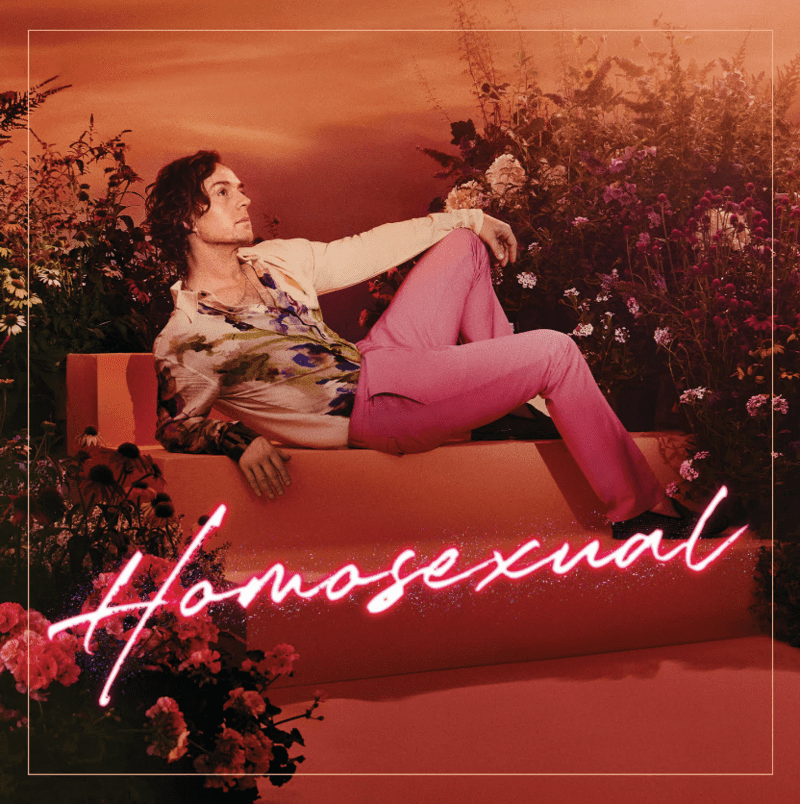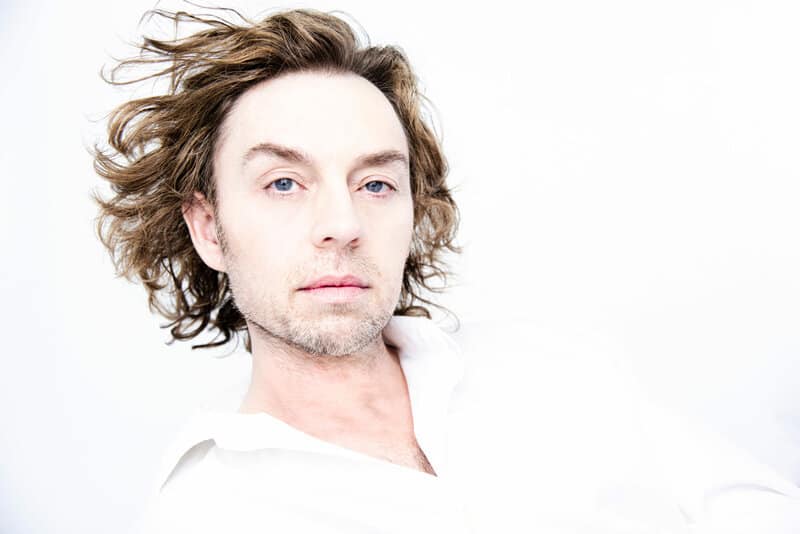Former Savage Garden frontman Darren Hayes releases his fifth solo album, provocatively-titled Homosexual, on October 7. It’s also his first album in well over a decade. After moving from the UK to the US, the Aussie ex-pat successfully tried his hand at podcasting, improv and writing a Baz Luhrman-esque musical, The Boy On Fire, which he hopes to stage soon. He spoke to Marc Andrews for Mediaweek from his base in LA about why he quit, his fresh start in music and how he had to deal with blatant homophobia at Sony Music as a solo artist.
MA: What led you to decide you needed some time away from the biz?
DH: I got really sad for a while, I really did. What made me stop was that in 2012 I remember coming offstage in Brighton and I had just been doing the same thing over and over again. I hadn’t really stopped. I remember being 13 and making this kind of pact with the universe to please get me out of my situation – whether that was this child who at that time was so afraid I had HIV because I loved boys and praying to God not to kill me please because the Grim Reaper ad was playing on television.
I thought that was going to happen, or for my home situation because it was so violent, or for being bullied at school for being gay. I was never really planning for a life after Savage Garden. Once we achieved that status of being global and successful, my first instinct having been trained as a child growing up with violence and trauma, was just to keep going and keep juggling. All of a sudden, I was 40. I did get to have this incredibly creative solo career as I got older, but what I really needed was to just stop for a little while, because people like Kate Bush did that. I thought my time was over and I was this relic, heading towards mid-life, so I just stopped.
Allegations about a toxic work culture at your old record label Sony Music were made last year. There has been a focus on its misogyny and bullying, but not so much on homophobia. Were you a victim of that?
Yes, and it’s so hard to pinpoint. There was always a buffer between the result and whoever was making the decision. I can’t give you an example of any one person who said anything directly to me, but there were whispers. I had friends at the label who were gay and a year or two later they told me stories of why things were happening to me. At the time I didn’t understand it. I came from selling all those records with Savage Garden to the song Insatiable. We went from one day with the entire New York office saying, “This is a #1 hit, you’re going to win a Grammy for Vocalist Of The Year and we’re totally behind you!” to days after shooting my first video them not returning calls. Suddenly I wasn’t booked on any television shows and suddenly my launch went from all those promises to “Let’s just ship him off to Europe!”.

Didn’t your record label insist you make another video for 2002’s “Insatiable”?
They absolutely did. They had focus groups about me, about what people felt about my jawline and what they felt about my hairstyle. I never got to choose my album cover – it was all from above and everything was about the perception of the public. They went so far on the first video – which they ended up throwing away! – to hire a female model to shoot footage of an alternate storyline which was her naked in a trenchcoat searching for me in a nightclub. The narrative was I was about to fuck this woman.
How did you react?
I said, “You can’t do that, I want that woman taken out of the video!” They saw me dancing in the video where I was in head-to-toe leather and had curly hair. The whisper I heard was, “When he moves he looks obviously gay!” If you look at the video that exists today, I was this observer and I became this observer for a long time in music videos because they ultimately had the final say.
It’s interesting your experience with Sony Music mirrors what George Michael went through a decade earlier with the same label.
Yeah. I should have known. Who did I think I was? If you insist on delivering the album you want to put out they’ll say, “Sure, we’ll put it out, but we’re not going to promote it!” I was subject to that.
That must have been hard for you to deal with as a multi-million-selling artist?
I remember the wilderness days of going from being the act that would get played on every station no matter what, to being a solo artist and being locked out of a major radio station because we were two minutes late.
The back story is I couldn’t get playlisted as a solo artist in Australia, after having sold all those millions of records. Then we got a last-minute phone call from the radio station to say another artist has cancelled their interview and if we could get there in 15 minutes they would interview me. I had no ego about it as well. We were in the middle of a photoshoot in Sydney and it was peak hour, so we were like, “Yeah, let’s do it!” and we jumped into the car. My publicist was in the car park of this radio station. I overheard the conversation. She was crying and devastated saying, “Don’t do this to me!”
They were like, “He’s late!” and we were trying to say it wasn’t our fault.
Why did you decide the time was right to return to making pop music now?
There has been a huge shift in me and that’s why I had to walk away. I also had to cut ties with who I was. I couldn’t keep going as that person anymore. There was no reason in coming back unless I had something to say and I needed a decade to learn stuff, even if it was just things like, “What does it feel like to have friendships with people who aren’t on your payroll?” I had 20 years of that. When I stopped paying people my life got really quiet and I had to learn that.
The album “Homosexual” is released on October 7. Darren is touring Australia for the first time in a decade in January/February 2023. For tickets and info visit www.darenhayes.com
• Marc Andrews is a former deputy editor of Mediaweek. Marc is also a Smash Hits all-star, having worked as a journalist on the Australian and UK editions of the world’s greatest music magazine. The boy from Brisbane lives in London these days working as a freelance travel writer and music journalist. We also contributes regularly to DNA magazine. He has recently published two music books – Kylie Song by Song and Madonna Song by Song.
Read more about Darren Hayes and his new album in the next edition of DNA.

